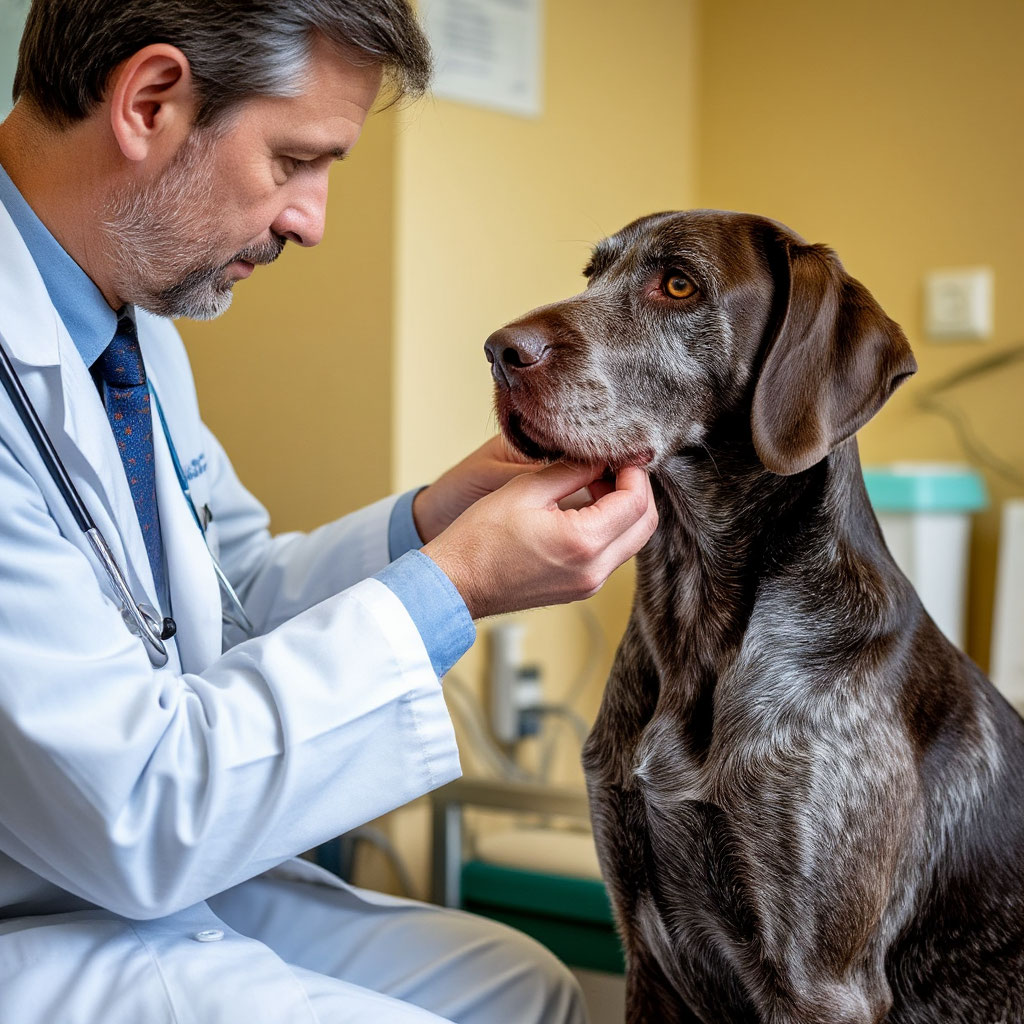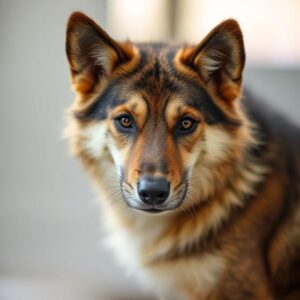Managing Age-Related Conditions in Rescued Working Pointers (GWP Rescue)
As German Wirehaired Pointers (GWPs) from rescue organizations age, they often face specific health challenges like arthritis, dental issues, weight gain, cognitive decline, and chronic pain. Proper care can significantly improve their quality of life. What are some practical, veterinarian-approved strategies for managing these conditions in older GWPs?
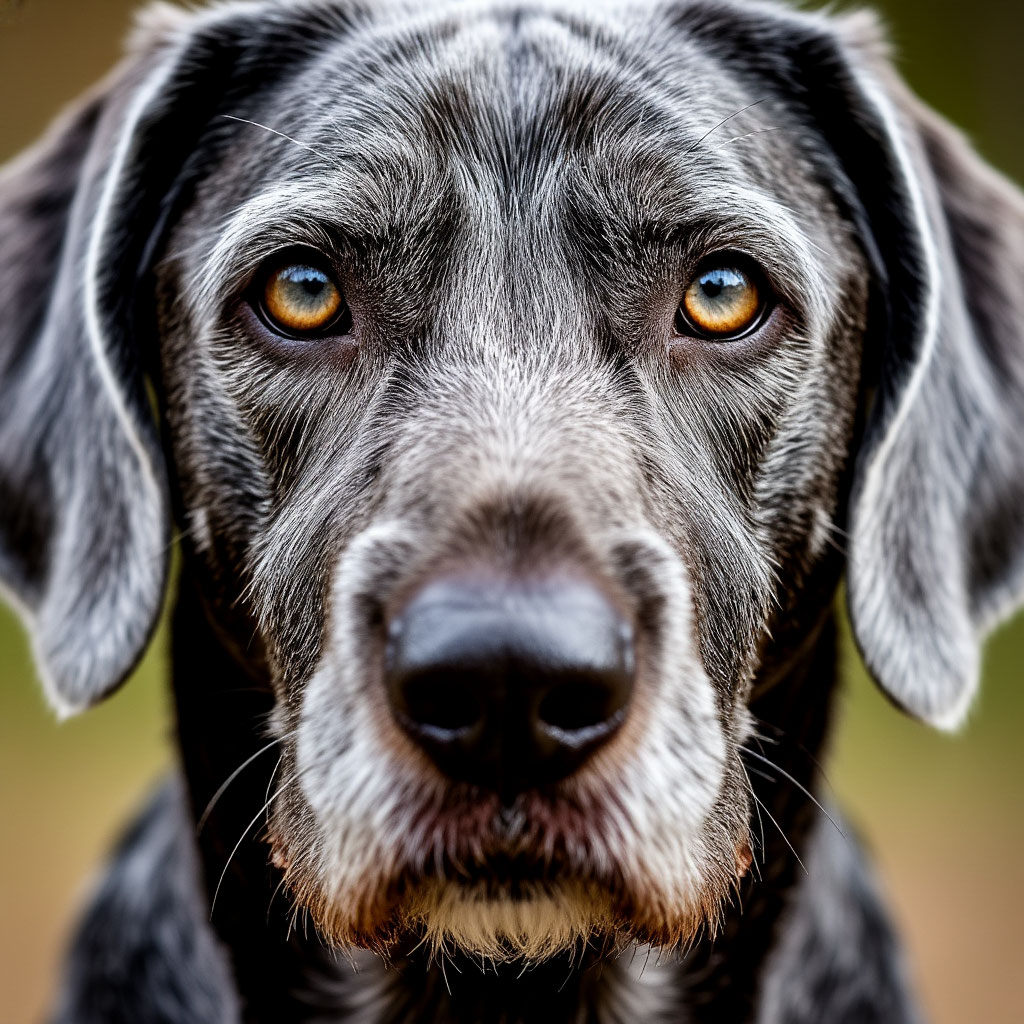
Understanding Common Health Issues in Older GWP Rescues
When you bring home a senior rescue pointer, you’re getting a dog with a lifetime of experience. These rescued German Wirehaired Pointers often come from environments where they worked hard, played hard, and didn’t always have consistent care. That’s why it’s important to understand their changing needs as they enter their golden years.
One of the first things you may notice is how your rescue pointer moves differently. That spring in his step isn’t quite what it used to be. Morning stiffness or hesitation before jumping on the couch can be early signs of joint problems. That’s where arthritis treatment in pointers becomes part of your daily routine. It’s not just about comfort, it’s about keeping them mobile and engaged in life.
Their mouths tell a different story. Those teeth that once chewed everything may now need some special care. Dental care for senior Pointers goes beyond fresh breath — it’s aimed at preventing pain and systemic health issues. You may notice that they’re pickier about what they eat or dropping kibble while eating, which are subtle signs that their teeth need to be checked.
Then there’s the metabolic change. The same dog that used to burn calories just by breathing may now start to gain weight. Weight management in inactive dogs becomes a balancing act — keeping them trim enough to move comfortably, but plump enough to stay healthy. It’s amazing how losing just a few pounds can bring that spark back.
Some changes are more subtle. Perhaps your rescue GWP takes longer to stop at familiar doorways or seems confused by routines he once knew by heart. These could be early signs that cognitive decline needs to be prevented. Just like in people, mental exercise becomes as important as physical exercise. What makes caring for an older rescue GWP so special is how they respond to that attention. They may move a little slower, but their ability to love and communicate remains strong. By understanding these common age-related changes, you’re not just extending their life—you’re improving every day of it.
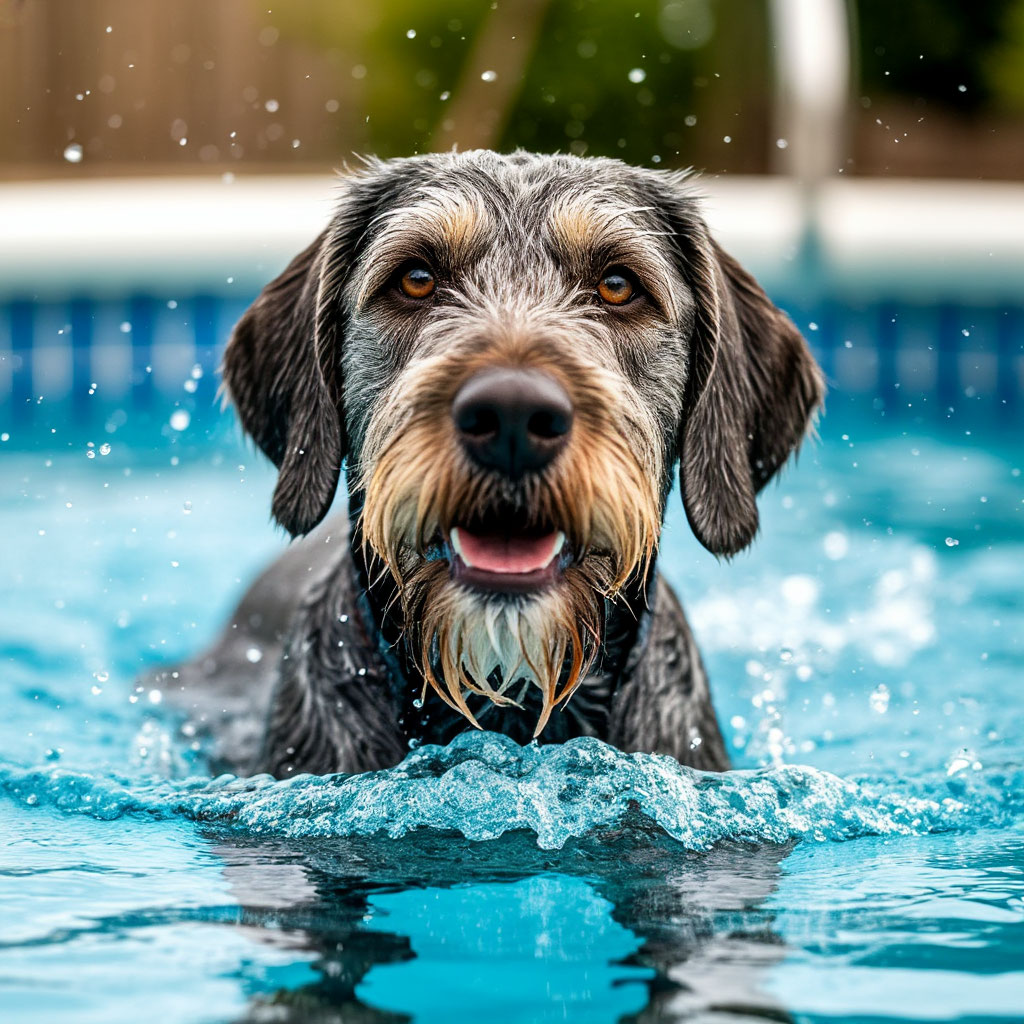
Treating Arthritis in Pointers: Keeping Them Mobile
Joint pain is very common in older German Wirehaired Pointers. Years of activity can lead to stiffness and discomfort. If your rescue GWP hesitates before jumping or seems sore after walks, arthritis could be the culprit.
Here are some things to help:
- Supplements like glucosamine support healthy joints.
- Short, gentle walks keep muscles strong, but don’t overdo it.
- Orthopedic beds relieve pressure on sore hips.
- Vet-prescribed medications can help if natural remedies aren’t enough.
- Swimming is another great option, gentle on the joints but keeping them active.
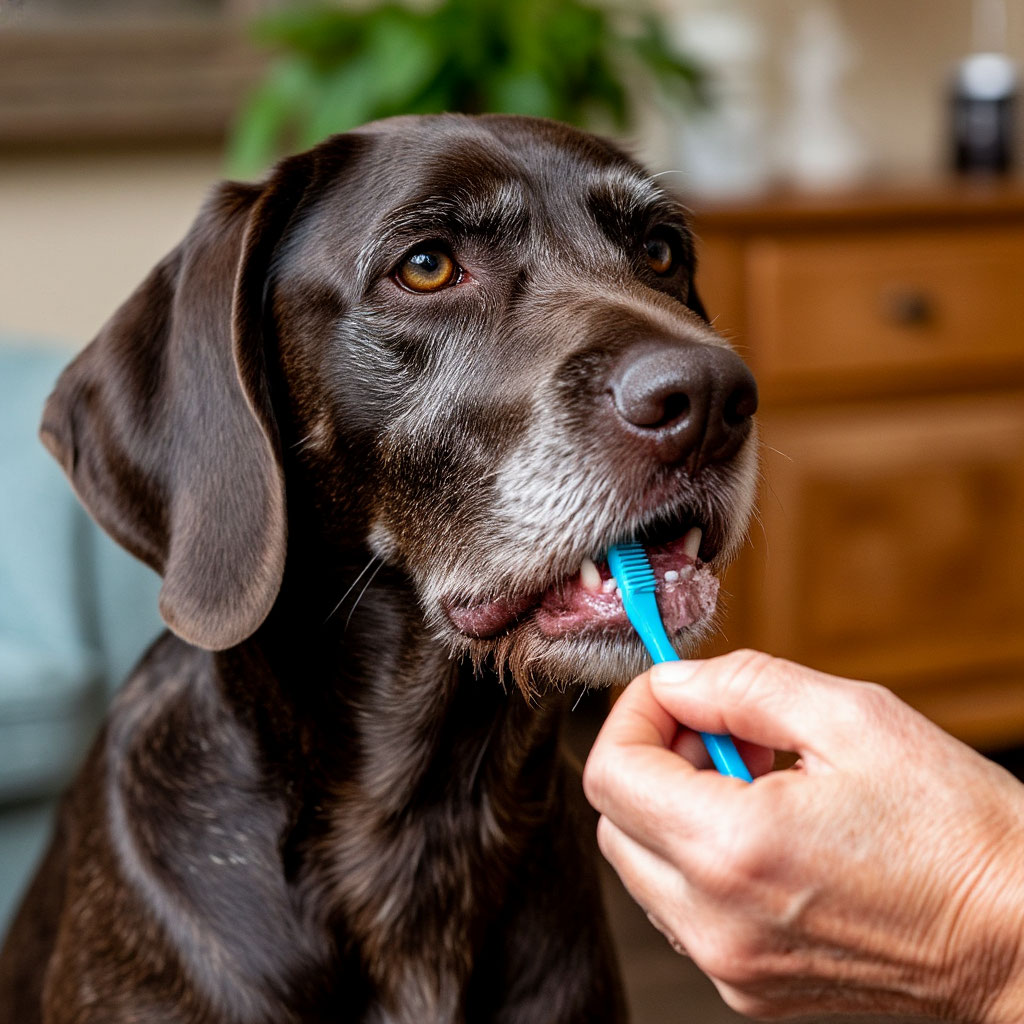
Dental Care for Senior GWPs: More Than Just Fresh Breath
Your senior GWP’s dental health affects much more than their smile — it’s vital to their overall well-being. Many rescued German Wirehaired Pointers develop serious dental problems after years of chewing and playing. You may notice yellowing teeth, inflamed gums, or an unwillingness to eat hard foods. These are all signs that senior GWP dental care should be a priority.
Start with regular brushing with a dog-safe toothpaste. If your rescue GWP resists, dental wipes or water additives can help reduce plaque. Veterinary cleanings become important as they age to combat tartar buildup and prevent painful infections.
Bad breath is often a sign of a more serious problem. Left untreated, oral disease can lead to heart, liver, and kidney problems in older GWPs. Incorporating dental care into your daily routine will help your pet eat comfortably and stay healthy longer. Watch for excessive drooling or pawing at the mouth. This requires immediate veterinary attention if your aging pet is saved.

Weight Management for Inactive Dogs: How to Avoid Putting on Extra Pounds
As GWP rescue dogs slow down, their metabolism slows down too. Excess weight puts stress on their joints and makes arthritis worse. A thin dog is a happier, more active dog.
Weight Management Tips
Experts offer a few tips:
- Switch to a senior dog food that’s lower in calories but still nutritious.
- Measure portions instead of free feeding.
- Don’t let them play too much—short fetch sessions or puzzles work well.
If you can’t easily feel their ribs, it may be time to cut back on treats.
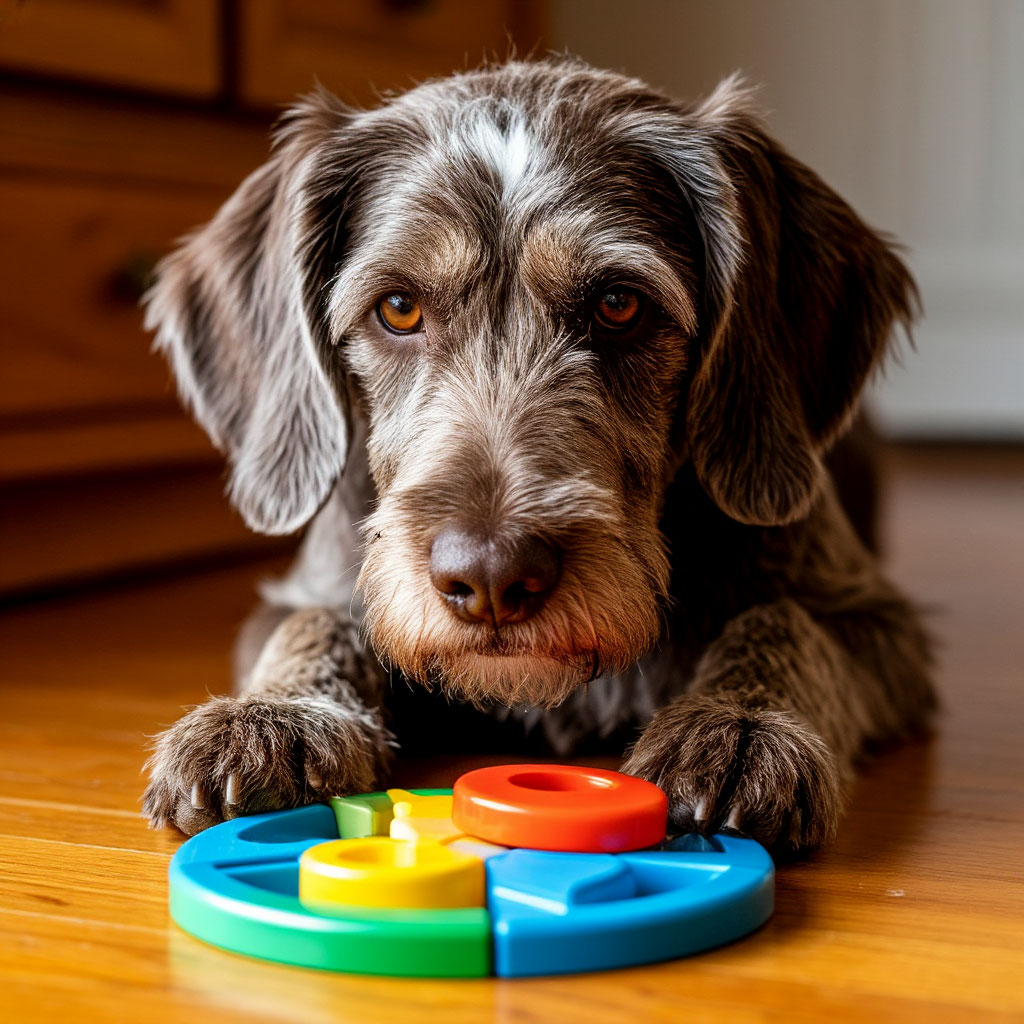
Preventing Cognitive Decline: Keeping Your Mind Sharp
As your rescue GWP enters senior age, you may notice subtle changes in the way he interacts with the world. That once-vivacious hunting dog who never missed a cue may start to seem a little distracted or confused. This isn’t just normal aging — it’s something we can actively slow down with cognitive decline prevention strategies.
The signs come gradually. Your rescue German Wirehaired Pointer may take longer to stop at doors he’s used to for years, or get momentarily lost in familiar places. Some begin to sleep more during the day but become restless at night. Others may stop responding to commands they’ve known their whole lives. These changes can be alarming, but there’s a lot we can do to help.
Mental stimulation becomes crucial for older GWPs. Just like humans, their brains need regular exercise to stay sharp. Simple training—even just practicing basic commands—helps maintain these neural pathways. Food puzzles that make them work for treats engage their problem-solving skills. Rotating toys keep their surroundings new and interesting.
Routine provides security for aging rescued GWPs who are experiencing cognitive changes. Keeping consistent feeding, walking, and nap times helps them feel oriented. You may notice that they do better when things in the home follow a predictable schedule.
Nutrition plays a role, too. Diets rich in antioxidants and omega-3 fatty acids support brain health. Some supplements specifically designed for cognitive function in older dogs show promise. Ask your vet about options.
Perhaps most importantly, patience and understanding are key. Your rescued GWP is not being stubborn—he may be genuinely confused.
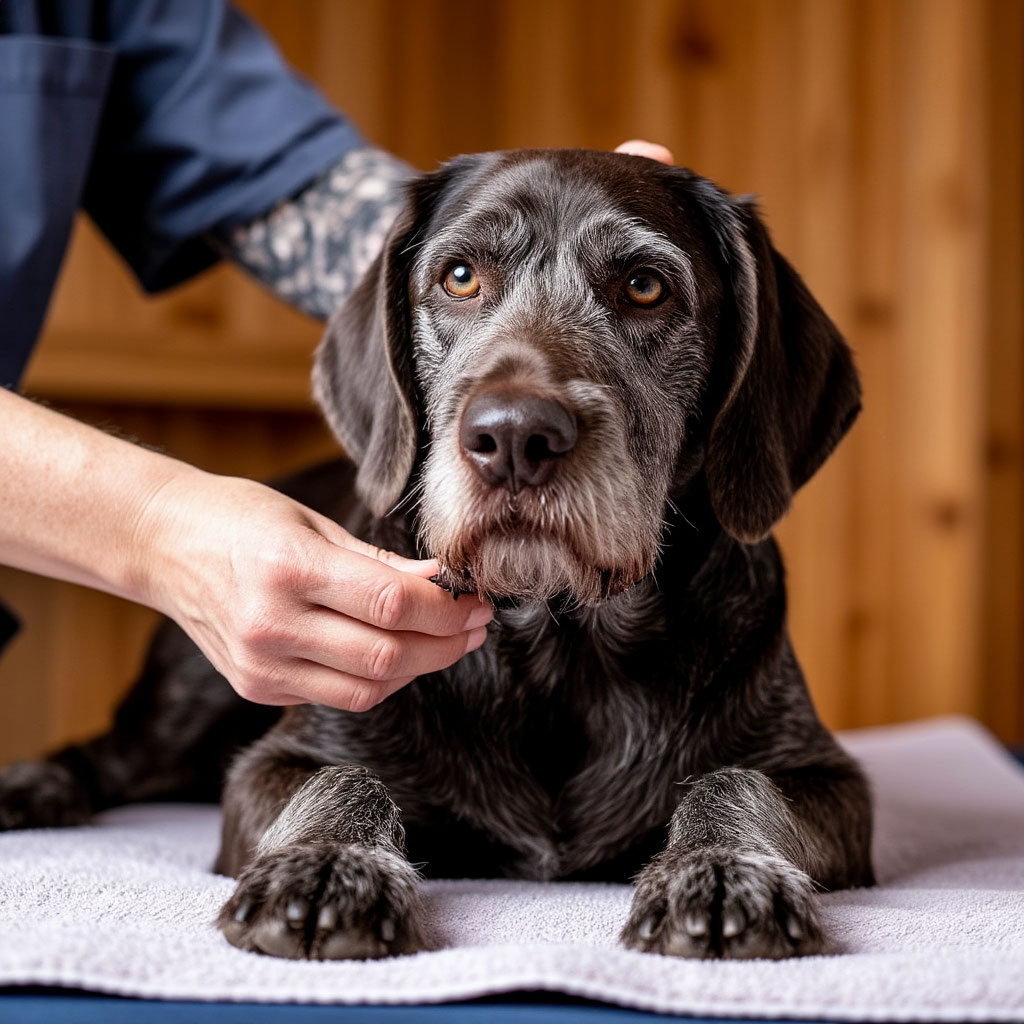
Pain Management Alternatives: Comfort Without Overmedicating
When your GWP rescue starts showing signs of discomfort, medication isn’t the only solution. Many German Wirehaired Pointer rescues benefit from gentler approaches to pain management alternatives that keep them comfortable while minimizing side effects.
For mild arthritis or soreness, consider these vet-approved options:
| Method | Best For |
| CBD oil | Mild discomfort, anxiety |
| Laser therapy | Inflammation, joint pain |
| Massage | Muscle stiffness |
| Acupuncture | Chronic pain relief |
Physical therapy helps many older GWPs maintain mobility without heavy medications. Hydrotherapy is particularly effective for arthritis management in pointers, allowing them to exercise without joint stress. Always consult your vet before trying new treatments for your aging GWP rescue – what works for one dog may not suit another.
Caring for an older GWP rescue dog requires patience and proactive health management. By addressing arthritis, dental health, weight, cognitive function, and pain early, you can help your loyal companion enjoy their later years comfortably. Always work with your vet to tailor a care plan that suits your dog’s unique needs.
